How to Select a Dog Breed That Is Known for Its Quiet Demeanor
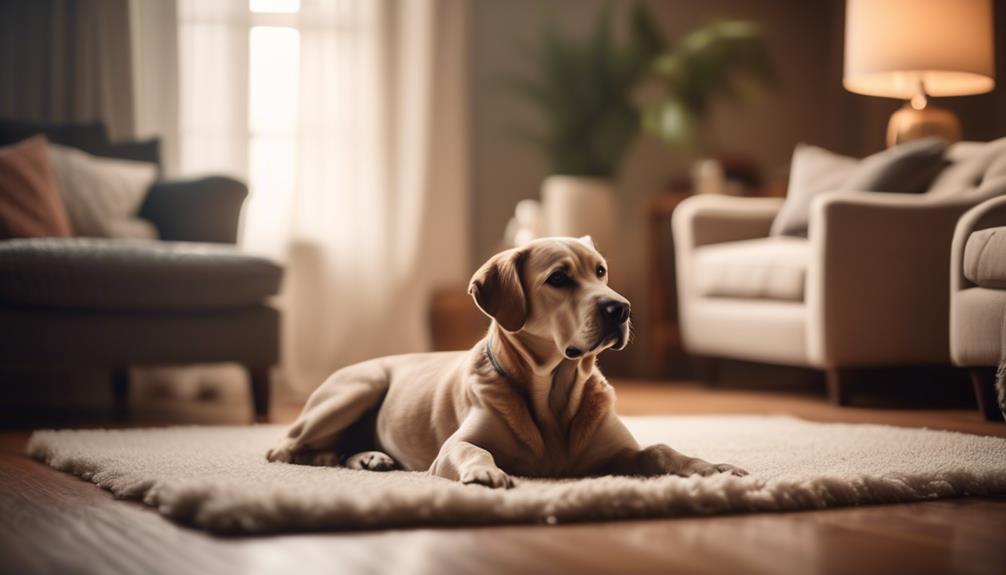
Tips for Choosing a Dog Breed with a Quiet Demeanor:
- Look for breeds known for their calm and peaceful nature, such as the Bichon Frise, Cavalier King Charles Spaniel, or Shih Tzu.
- Consider their size, exercise needs, and compatibility with your lifestyle to find the perfect quiet companion for your home.
Key Takeaways
- Consider your living situation and the size of the dog breed when selecting a quiet dog breed.
- Take into account the temperament and energy levels of the breed, as well as the individual behavior within the breed.
- Choose a breed that is suitable for your lifestyle and living space, whether it's a small apartment or a larger outdoor area.
- Pay attention to the noise sensitivity of the breed and consider the grooming and maintenance needs associated with the breed's coat type.
Factors to Consider
When selecting a quiet dog breed, there are several important factors to consider. One of the first considerations is your living situation. If you live in an apartment, you may want to opt for a small or low-maintenance dog breed that's less likely to disturb your neighbors with excessive barking. One such breed is the Cavalier King Charles Spaniel, known for their calm and gentle nature.
The size of the dog breed is another crucial factor to consider. Larger dogs tend to have deeper barks, which may not be suitable for apartment living. On the other hand, small breeds typically have a softer and quieter bark. Keep in mind that even quiet dog breeds may occasionally bark to communicate or alert their owners.
Additionally, it's essential to research the temperament and energy levels of different dog breeds. Some breeds are naturally more laid-back and less prone to excessive barking, making them excellent choices for those seeking a quiet companion. However, it's important to note that individual dogs within a breed can vary in behavior, so it's crucial to spend time with the specific dog you're considering before making a decision.
Lastly, grooming and maintenance needs should be taken into account. Low-maintenance dog breeds often require less grooming, which can be beneficial for those with busy lifestyles. By considering these factors, you can find the perfect quiet dog breed that aligns with your lifestyle and preferences.
Lifestyle Compatibility
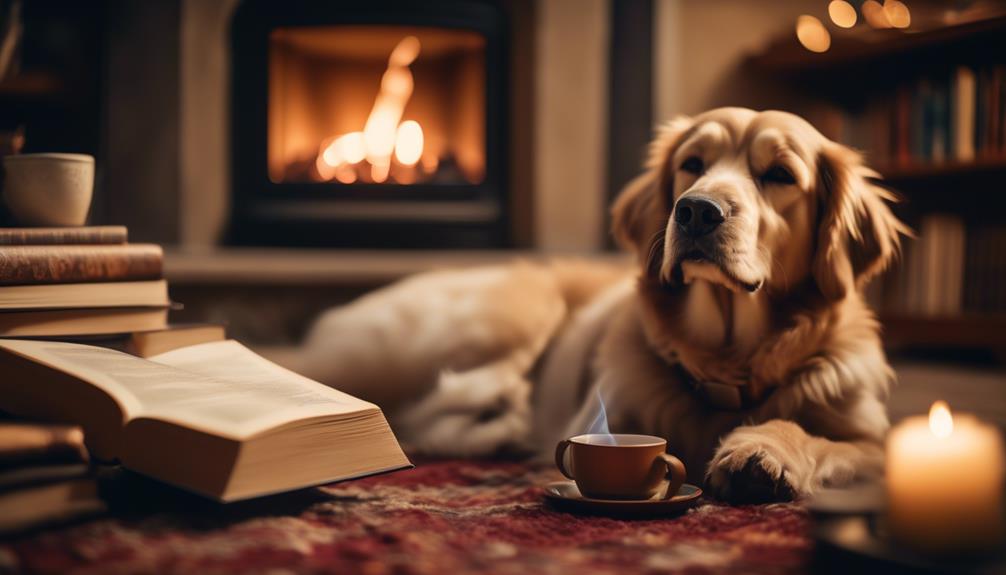
Considering your lifestyle and activity level is essential when choosing a quiet dog breed that's compatible with your daily routine. The breed that fits your lifestyle will depend on factors such as your living space, energy level, and preference for a quiet demeanor.
If you live in a small apartment, for example, it may be more suitable to consider small breeds that require less exercise and are generally quieter. On the other hand, if you have a large house and enjoy outdoor activities, you may lean towards larger, more active breeds that can handle your energy level.
Additionally, if you have children, it's important to choose a breed that's known for being good with kids. Some examples include the Adorable Toy Dog, which is small in size and gentle, or the Best Dogs for Kids, which are known for their calm and patient nature.
Seeking advice from professionals and experts can provide valuable insights into which breeds are quiet and compatible with your lifestyle, ensuring a harmonious and peaceful environment for both you and your furry companion.
Temperament and Personality Traits
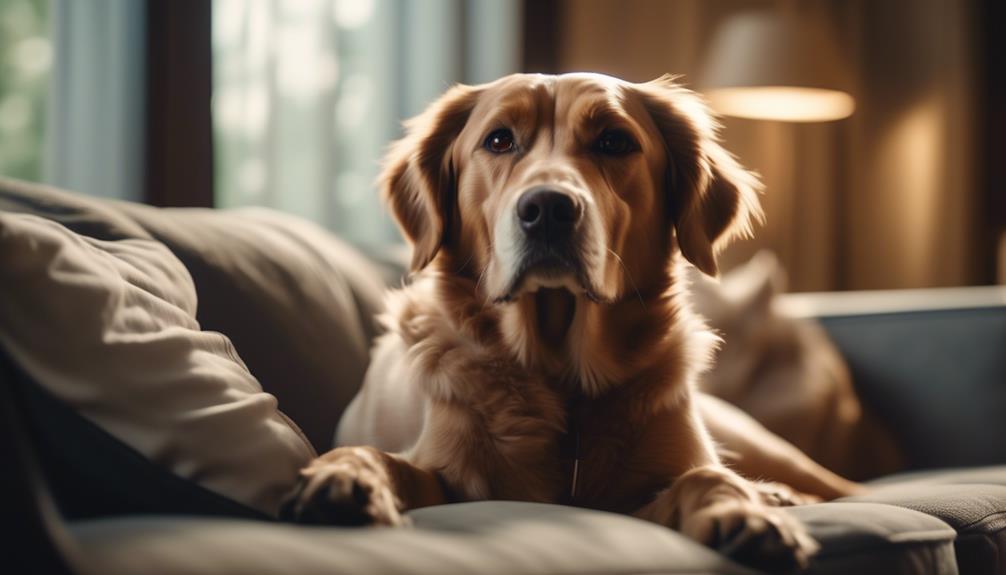
Temperament and personality traits significantly influence the quietness of a dog breed, with certain breeds known for their calm demeanor and minimal vocalization tendencies. When looking for a dog with a quiet demeanor, it's important to consider the temperament and personality traits of different breeds.
Quiet dog breeds are generally low in vocalization tendencies, displaying a calm and composed temperament. These breeds tend to bark or howl less frequently compared to other breeds. They're adaptable to various environments and are less likely to become easily agitated or anxious.
There are several breeds known for their quiet demeanor. Small quiet dog breeds include the Cavalier King Charles Spaniel, Bichon Frise, Shih Tzu, Italian Greyhound, and Maltese. These breeds are generally calm, gentle, and well-suited for apartment living.
Medium-sized quiet dog breeds encompass the Basenji, Whippet, Bulldog, Chow Chow, and Keeshond. They're known for their calm and composed nature, making them suitable for families and individuals alike.
Large quiet dog breeds consist of the Newfoundland, Great Dane, Saint Bernard, Irish Wolfhound, and Bernese Mountain Dog. Despite their size, these breeds are often described as gentle giants and are known for being calm and docile.
When considering a dog with a quiet demeanor, it's essential to evaluate the temperament and personality traits of different breeds. By understanding the characteristics of each breed, individuals can make an informed decision that aligns with their lifestyle and preferences.
Size and Exercise Needs
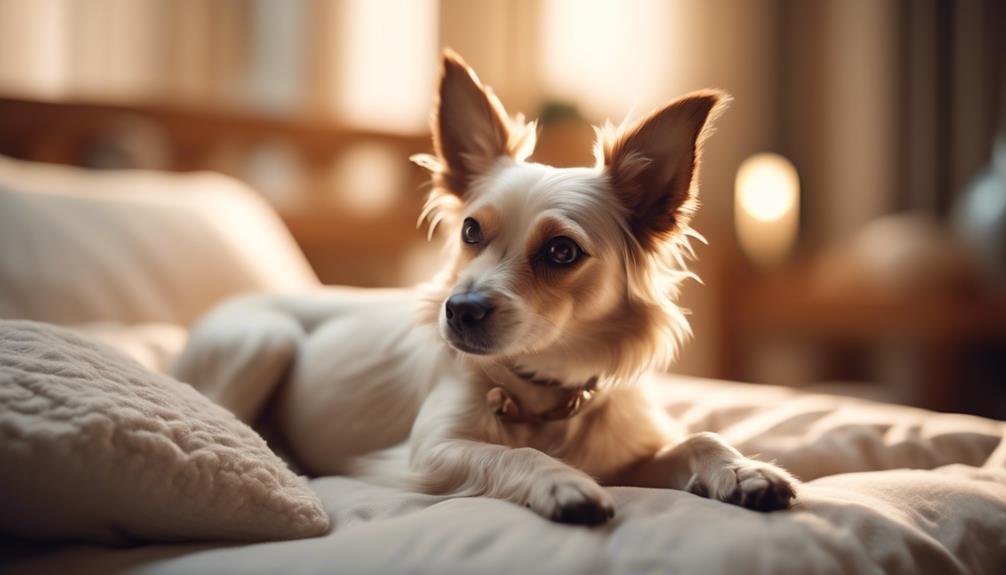
Size and exercise needs play a crucial role in determining the suitability of a dog breed for your living environment and lifestyle. When selecting a dog breed known for its quiet demeanor, it's important to consider the size of the dog and its exercise requirements. Here are some key points to keep in mind:
- Small dogs, such as the Cavalier King Charles Spaniel and Shih Tzu, are more adaptable to apartment living. Their compact size allows them to thrive in smaller spaces without feeling confined.
- Large dogs, often referred to as 'gentle giants,' are better suited for houses with ample space. They require more room to move around comfortably and may feel restricted in smaller living quarters.
- Consider the exercise needs of the dog breed. Energetic breeds, like the Shih Tzu, may require more physical activity and mental stimulation to prevent boredom and destructive behaviors.
- Look for breeds that are known for their calm and relaxed demeanor. These dogs are more likely to be content with moderate exercise and are less likely to develop separation anxiety or exhibit excessive barking.
- Keep in mind that exercise needs can vary greatly between breeds. Research the specific exercise requirements of different dog breeds to ensure they align with your lifestyle and availability for physical activity.
Noise Sensitivity

Noise sensitivity in dogs can vary greatly depending on the breed. Some dogs are known to be more sensitive to loud noises, such as fireworks or thunderstorms, which can lead to anxiety or excessive barking. It's important to consider a dog's noise sensitivity when selecting a breed, especially if you live in a noisy environment or have specific noise-related concerns.
Certain breeds, like the Cavalier King Charles Spaniel, are known for being more noise-sensitive. These small dogs will always respond strongly to loud noises and may require extra care and attention during such events. On the other hand, breeds like Bernese Mountain Dogs, which were originally bred as guard dogs to protect livestock, are less likely to be bothered by loud sounds. It's important to remember that noise sensitivity can vary within a breed, so it's crucial to research and ask about a specific breed's noise sensitivity before making a decision.
When choosing a dog breed, it's also essential to consider the dog's temperament, intelligence, and size. For example, the Border Collie is known to be one of the smartest dog breeds, but they can also be more prone to noise sensitivity. On the other hand, the Golden Retriever, which is a popular dog breed known for its friendly nature, is less likely to be affected by loud noises.
Grooming and Maintenance Requirements
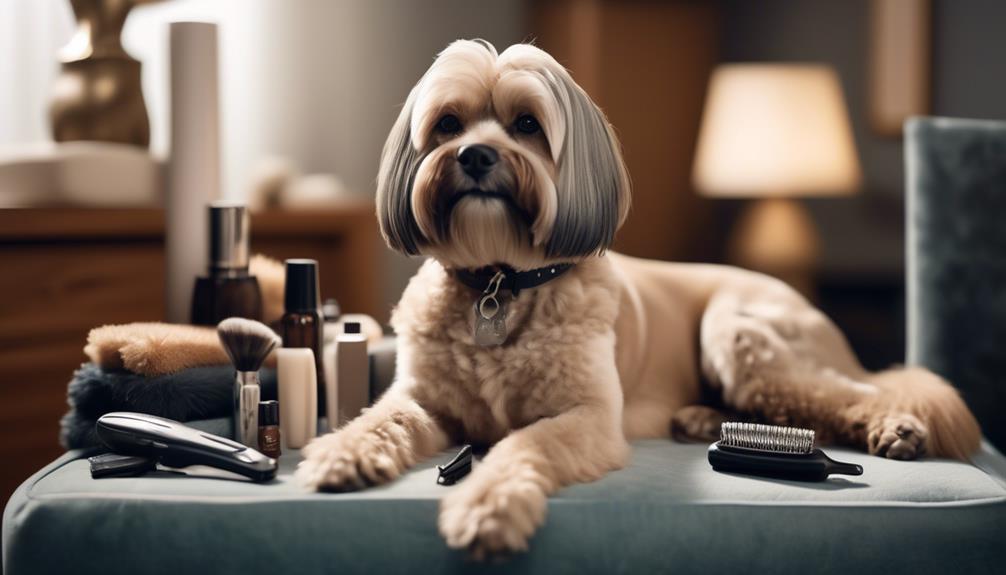
Grooming and maintenance requirements play a crucial role in selecting a quiet dog breed, as these factors can greatly impact the amount of time and effort needed to keep the dog's coat and overall appearance in good condition. When choosing a dog breed known for its quiet demeanor, it's important to consider the grooming and maintenance needs of the breed.
Here are some key factors to consider:
- Shedding: Some dog breeds are known to shed more than others. If you prefer a dog breed with minimal shedding, look for breeds that have a single coat or breeds that are considered hypoallergenic.
- Coat type: Different dog breeds have different coat types, such as short, long, curly, or wiry. Consider the specific grooming needs associated with the coat type of the breed you're interested in. Some breeds may require regular brushing, while others may need professional grooming.
- Grooming frequency: Some dog breeds need more frequent grooming than others. If you have limited time for grooming, it may be wise to choose a breed that requires less frequent grooming or has a low-maintenance coat.
- Special grooming needs: Certain dog breeds may have specific grooming needs, such as regular ear cleaning, teeth brushing, or nail trimming. Make sure you're aware of any special grooming requirements before selecting a quiet dog breed.
- Professional grooming: Some dog breeds may require professional grooming to maintain their coat and overall appearance. Consider the cost and availability of professional grooming services when selecting a quiet dog breed.
Training and Socialization Needs
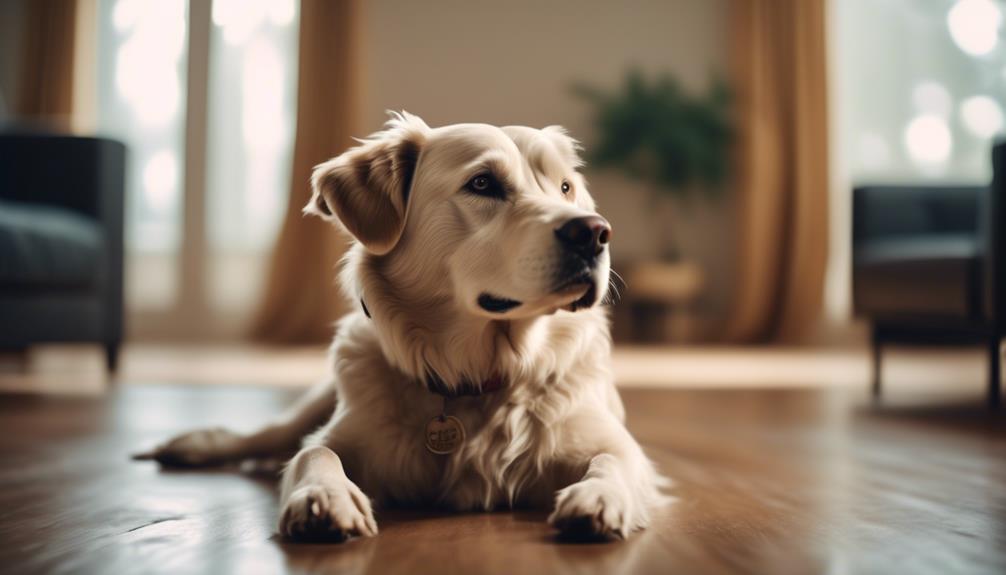
Training and socialization are crucial aspects to consider when selecting a quiet dog breed, as they play a significant role in shaping the dog's behavior and overall temperament. To maintain a quiet demeanor, it's important to start training early to establish good habits. Positive reinforcement techniques should be used to reward desired behaviors, such as being calm and quiet. Teaching the 'quiet' command can also be helpful in managing barking tendencies.
In addition to training, providing mental stimulation is important for a quiet dog breed. Puzzle toys and games can help keep their minds engaged and prevent boredom, which can lead to excessive barking. Regular exercise is also necessary to ensure that the dog expends their energy in a healthy way.
Socialization needs shouldn't be overlooked when selecting a quiet dog breed. Proper socialization from an early age can help the dog feel more comfortable in various environments and around different people and animals. Consider enrolling the dog in professional training or obedience classes to ensure they receive the necessary socialization experiences.
If the dog's barking becomes a persistent issue despite training and socialization efforts, it may be necessary to seek professional help. A professional dog trainer or behaviorist can provide guidance and address any underlying issues that may be contributing to the excessive barking.
Frequently Asked Questions
How Do I Choose a Quiet Dog?
To choose a quiet dog, consider breeds with calm temperaments and minimal barking tendencies. Older dogs known for their quiet nature are also an option. Research breeders who prioritize producing quiet dogs and create a peaceful environment for your pet.
What Is the Quietest Breed of Dog?
The Basenji, Shih Tzu, Whippet, Borzoi, and Cavalier King Charles Spaniel are some of the quietest dog breeds. Training, exercise, socialization, and understanding triggers can also help create a calm and quiet environment.
What Dog Has the Calmest Temperament?
The calmest dog breeds for apartment living are small and low-energy. Training tips can help create a quiet and well-behaved dog, benefiting individuals with anxiety. Socialization and genetics also play a role in a dog's temperament.
What Dog Should an Introvert Get?
Introverts looking for a dog should consider breeds known for their calm temperament. Training and socializing are key to a well-behaved dog. Creating a peaceful environment and providing regular exercise are important for these quiet breeds.









